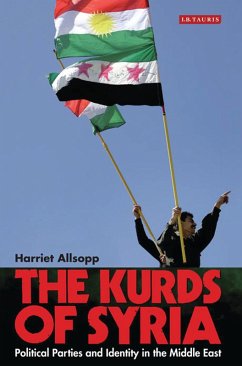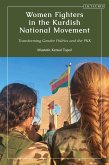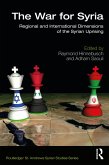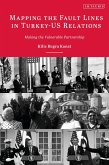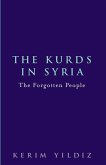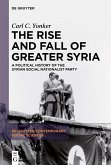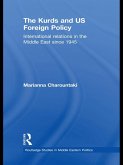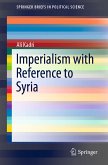Since the beginning of 2011, the political situation in Syria has consistently found itself at the top of news broadcasts, newspaper headlines and the agendas of politicians. Little known, however, has been the struggle of the Kurds in Syria to have their voice heard on the political stage and to have equitable access to both economic and political resources. This examination of contemporary Kurdish politics in Syria therefore concentrates on the Syrian-Kurdish political parties which operate illegally in the country. It is these parties and their political leaders, such as Abd -al-Hakim Bashar of the Kurdish Democratic Party in Syria and Abd al- Hamid Darwish of the Kurdish Democratic Progressive Party in Syria, who, despite state sanctions, have attempted to promote their political agendas and to bring about change for the approximately three million Kurds that currently reside in the country. Harriet Allsopp examins Kurdish political parties, how they have tried to negotiate their illegality and how they have developed since 1957 when the first one was established.
BY 1960, all political parties were banned, and the Kurds found themselves under increased political pressure from the central state. From 1960 until the present day, this prohibition has been the official position of successive Syrian governments, despite a brief political opening upon the accession of Bashar al-Asad in 2000. It is through a systematic analysis of the history of Kurdish political parties that Allsopp highlights how, on the eve of the Syrian uprising, they were in the midst of a crisis, widely seen as ineffectual and out of touch. Nevertheless, out of the uprising, Kurdish politics has appeared to take on a much more cohesive and effective character. The Kurds of Syria eplores the fundamental issues of minority identity and the concept of being 'stateless' in a turbulent region, as well as the organisation of political parties in Syria, making it vital for all those researching the politics of the modern Middle East.
BY 1960, all political parties were banned, and the Kurds found themselves under increased political pressure from the central state. From 1960 until the present day, this prohibition has been the official position of successive Syrian governments, despite a brief political opening upon the accession of Bashar al-Asad in 2000. It is through a systematic analysis of the history of Kurdish political parties that Allsopp highlights how, on the eve of the Syrian uprising, they were in the midst of a crisis, widely seen as ineffectual and out of touch. Nevertheless, out of the uprising, Kurdish politics has appeared to take on a much more cohesive and effective character. The Kurds of Syria eplores the fundamental issues of minority identity and the concept of being 'stateless' in a turbulent region, as well as the organisation of political parties in Syria, making it vital for all those researching the politics of the modern Middle East.

